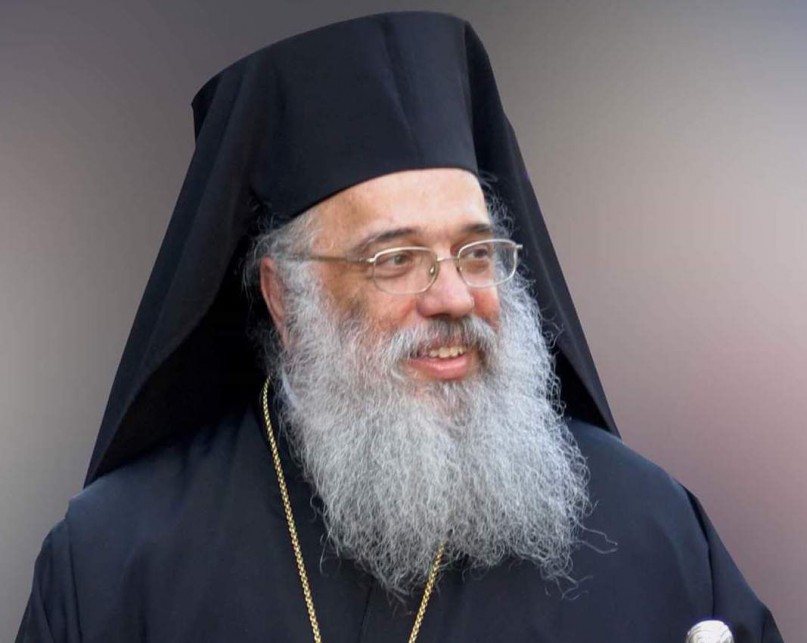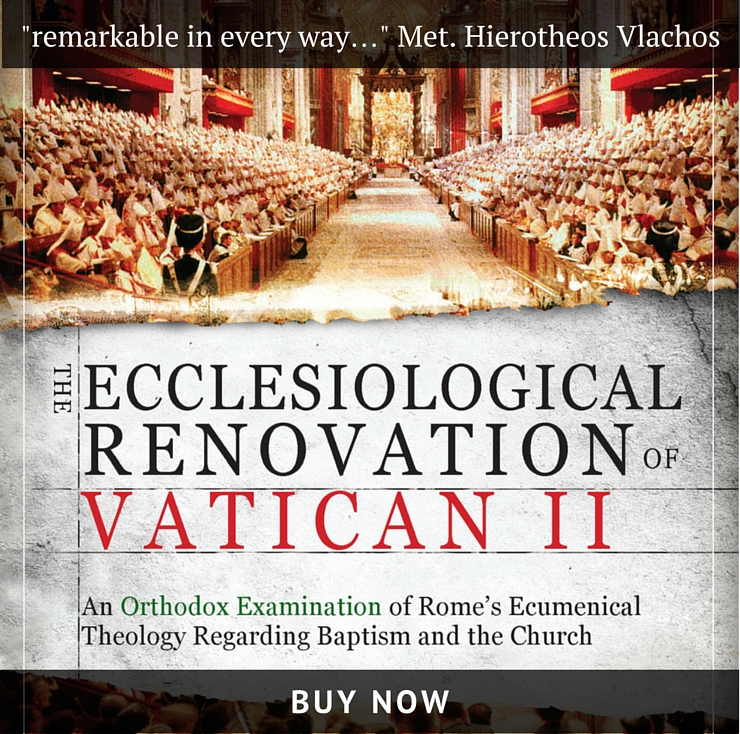Due to the latest events after the pause of the divine services, caused by the novel virus, we would like to humbly state the position of our Holy Church on whether any diseases can be spread through the Holy Sacraments, or through her sanctifying means, the veneration of the Holy Icons, the kissing of the hands of the priests, or even by simply staying in the sacred temples.
1. Concerning the Sacrament of Holy Communion. It is commonly accepted from the universal Church that it is impossible that the Body and Blood of Christ can transmit any disease. This is how our Church teaches, and it is proven by experience; there are priests that served in hospitals of infectious diseases for decades, highly transmittable and incurable at their times, yet they never got sick. For this reason, it was a huge mistake by a certain priest of our diocese to commune the faithful with disposable spoons.
2. Concerning the kissing of the priests’ hands and staying in the Church. The timing of the conversation on these topics is very fortuitous.
a. On the second Sunday of the Great Lent we celebrated the memory of St. Gregory Palamas who greatly preached by word and deed the possibility of participating in the uncreated divine energies. Conversely, those of us who abstained from participating in the Sunday worship have practically preached the heresy of Barlaam who denied the human participation in the divine, uncreated energies.
b. No doubt, the priest is a human being, weak, fallen, and struggling to purify his inner being. Yet, the priest, “clothed with the grace of the priesthood” participates and radiates the uncreated, divine energies through his priestly office, regardless of his personal sanctification. Obviously, if the priest is a holy man, then he transmits double the grace. Nevertheless, it is important to reiterate that when we kiss the hands of the priests, we participate in the uncreated, divine energies of God, and we receive the Divine Grace according to the measure of our faith and piety.
c. As St. Paisios of the Holy Mountain (†1994) used to say, who always kissed with great piety the hands of the officiating priest after the Divine Liturgy, “the priest’s hands are not his own.”
d. If we believe that the priest can transmit diseases then we deny the grace of the holy priesthood, ultimately denying the grace of God. When with our actions we doubt or deny the uncreated divine energies, then we manufacture another god, and we refuse the true God.
e. The same holds true about the holy temples. The temple is the body of our living God. And this is not just symbolic. In our Church, the figures and symbols enclose a fundamental quality, the Truth, and this is why we observe these symbols. And the truth is that the holy temple as the Body of Christ cannot be a place where diseases can be transmitted. Should we doubt this, then we doubt that there is grace within them. We equate the Temple with an ordinary gathering hall.
3. All this sad conversation ends with a serious question and a sad observation.
a. The question is: Do we really believe in God? And if so, which God? In a Barlaamitic god manufactured by our own reasoning? In a god that we attribute as much grace as our poor brain can fit?
b. The bitter realization is that we inadvertently blaspheme against the Holy Spirit. We hold a heretical mindset, even while we declare our Orthodox faith. By doubting the Holy Spirit, we commit blasphemy against the Holy Spirit, and we are in danger of losing the forgiveness both in this present age and in the eternal age to come.
c. When we are afraid to kiss the holy icons, to kiss the hand of the priest, to stay within the holy Church, then by our actions we deny the salvific and sanctifying grace of the Holy Spirit. We consider that the Holy Spirit is capable of transmitting “uncleanness or impurity” and this constitutes a great blasphemy.
4. Therefore, let us confess with our actions, as we do with our lips, that we believe that in the holy icons, in the priests, and in the holy temples reside the Divine grace.
a. Our participation in this grace depends to the measure of our faith. The amount of grace we receive, is directly related to the amount of faith we have.
b. However, the existence of this grace does not depend on our faith. God, “who is, and who was, and who is to come” (Rev. 1:8) does not cease to exist if we do not believe in Him.
c. Accordingly, we accept the pressure of the civil law to stop the divine services as a divine chastisement for we have sinned, and have committed iniquity, and have done wickedly, and have rebelled, by departing from the precepts and judgments of our Lord (Dan 9:5 KJV).
d. Yet, we do not accept the justification of the State that there is a danger of transmitting disease through the Holy Church of Christ, and by the divine sacraments that take place in her...
5. In short, it is impossible to get infected or acquire any disease from Holy Communion, the holy icons, kissing of the hands of the priests, or by our presence in the sacred temples. If we so believe with all our hearts, we shall receive abundantly the grace of our God in our lives. If we deny or doubt this, we suffer the heresy of Barlaam and the iconoclasts; we deny God, and we commit a blasphemy against the Holy Spirit.
Hence, let us stand rightly! Let us believe correctly and with simplicity, and the Grace of the Divine Father and the communion of the Holy Spirit shall always be with us. Amen!



Please be kind, lest your comment go the way of Babylon.